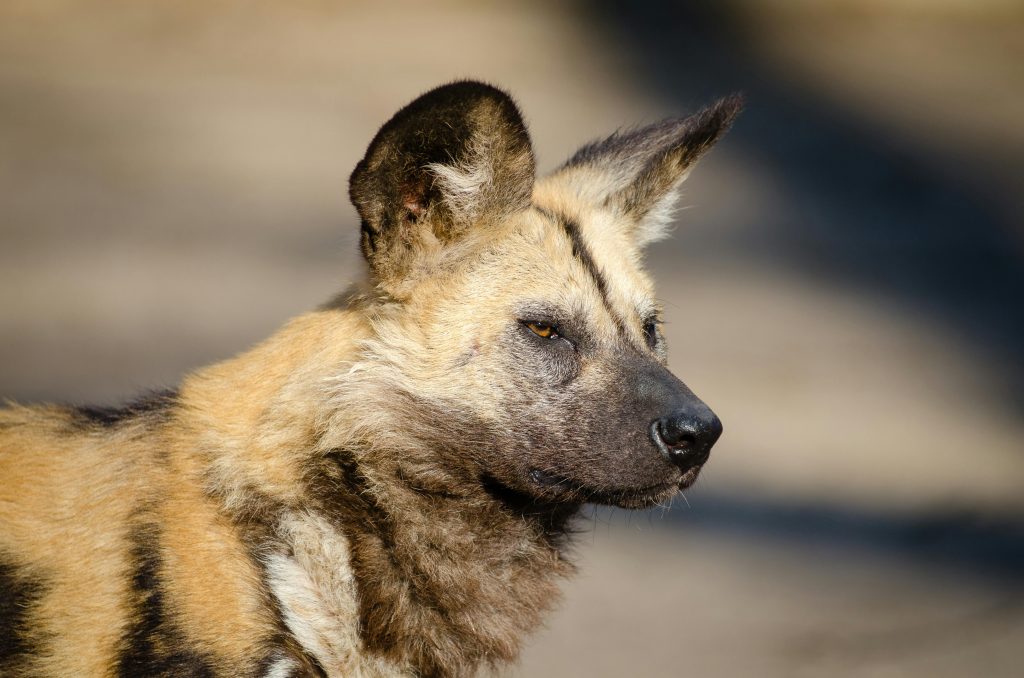In celebration of World Wild Dog Day on 26 August 2025, the Bothongo Rhino & Lion Nature Reserve is highlighting the African Wild Dog—one of Africa’s most extraordinary and endangered predators.
Recognised for their unique coats, strong social bonds, and exceptional cooperation, these fascinating animals are essential to maintaining ecological balance.
As part of its mission to conserve wildlife and educate the public, the Bothongo Rhino & Lion Nature Reserve shares 10 intriguing facts about African Wild Dogs and invites visitors to witness these remarkable animals up close.
But before diving into these fascinating facts, here’s what Didi Mahlo, a field ranger at the reserve, had to say about these incredible predators.
“African Wild Dogs are one of the most fascinating animals to observe and learn about. Their social bonds, resilience, and intelligence make them truly unique. This World Wild Dog Day, we want to inspire South Africans to celebrate and protect these animals, because they are an essential part of our natural heritage,” said Didi.

10 fascinating facts about African Wild Dogs
1. They are not actually “dogs”
African Wild Dogs belong to the genus Lycaon, setting them apart from domestic dogs and other canids such as wolves and jackals. Their scientific name, Lycaon pictus, means “painted wolf,” a nod to their strikingly patterned coats.
2. Every dog has a unique coat
No two African Wild Dogs share the same coat pattern. Their vibrant, seemingly chaotic mix of yellow, brown, black, and white markings are as unique as human fingerprints, allowing researchers to identify each individual dog with ease.
3. They are one of Africa’s most endangered carnivores
With an estimated adult population of just 6,600, African Wild Dogs are classified as endangered on the IUCN Red List. Their survival is threatened by habitat loss, conflict with humans, and the spread of infectious diseases from domestic dogs.
4. They have a 90% hunting success rate
African Wild Dogs are remarkably efficient hunters, boasting a success rate that surpasses that of lions and cheetahs. Their effectiveness comes from outstanding teamwork and endurance, enabling them to outpace and exhaust their prey during long, high-speed pursuits.
5. They vote on hunts by “sneezing”
Before setting off on a hunt, African Wild Dogs engage in a unique social ritual that includes a series of sneezes. Researchers believe these “social sneezes” act as a form of group decision-making, where a burst of sneezing indicates the pack’s collective readiness to start the hunt.
6. The entire pack helps raise the pups
In an African Wild Dog pack, only the alpha male and female reproduce. However, the entire pack shares the responsibility of caring for the pups—feeding, protecting, and even regurgitating food for them during their early stages of life.
7. They have massive ears
African Wild Dogs have large, rounded ears that resemble satellite dishes. These ears not only allow them to detect faint sounds over long distances but also play a vital role in regulating body temperature by helping to release excess heat in the hot African climate.
8. They have only four toes
Unlike most canids, which have five toes on their front feet, African Wild Dogs possess a distinctive physical trait: four toes on each foot with no dewclaws. This adaptation is believed to enhance their speed.
9. They care for the old and sick
African Wild Dogs are renowned for their altruistic behavior. When a pack member is old, sick, or injured, the others continue to bring food and provide care until the individual recovers.
10. They have a very specific vocal range
Rather than barking, African Wild Dogs communicate using a range of distinctive sounds such as squeaks, hoots, and chattering. These vocalisations help them coordinate while on the move or during a hunt.
Visitors to the Bothongo Rhino & Lion Nature Reserve have the opportunity to observe African Wild Dogs up close during educational game drives and feeding sessions. By offering this close encounter, the reserve aims to raise awareness about the vital importance of protecting these remarkable predators.
If you and your family want to learn more, visit https://www.rhinolion.co.za/or check out the Bothongo Rhino & Lion Nature Reserve on Facebook and Instagram.
HAVE YOU SEEN THIS: Five reasons to visit Bothongo Rhino & Lion Nature Reserve’s iconic Neck & Deck Restaurant


[…] HAVE YOU SEEN THIS: 10 wild facts you didn’t know about African wild dogs on this World Wild Dog Day […]